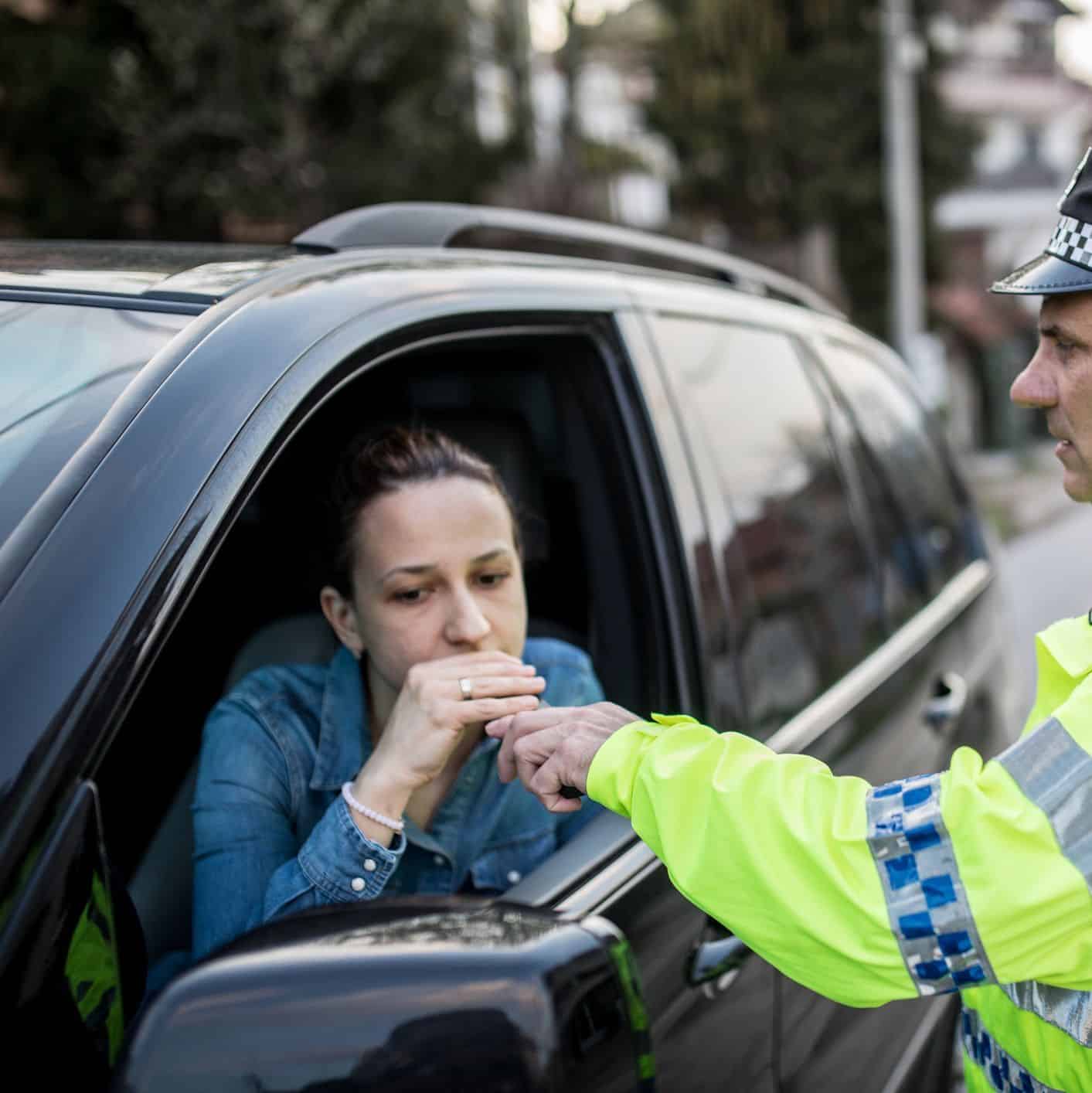According to a 2006 study conducted by the National Highway Traffic Safety Administration, about six percent of California motorists refuse to take DUI tests when ordered to do so.
Although this represents the third-lowest refusal rate of all U.S. states, numerous California residents are affected by this decision each year. These individuals may be charged with DUI test refusal (CVC 23612), which can lead to a range of negative consequences.
If you have been charged with this offense, you may be wondering about the smartest way to move forward. While internet research serves as a positive first step, it’s not enough. For the best results, it’s imperative to partner with an experienced DUI defense attorney in California.
This article will explore the consequences of a DUI test refusal under CVC 23612, including potential penalties, legal defenses, frequently asked questions, and more.
Defining DUI Chemical Test Refusal Enhancement Under Vehicle Code 23612
DUI test refusal (CVC 23612) has the potential to enhance penalties for driving while intoxicated in California. If you have been arrested on suspicion of driving under the influence (DUI), you face heightened consequences for refusing an alcohol test.
What Are DUI Chemical Test Refusal Enhancements?
At the very least, your driver’s license will be revoked for one year if you refuse a DUI test after a lawful arrest in California. You will also face a fine of $125. In addition, CVC 23612 states that test refusal will result in mandatory imprisonment. For a first offense, this is a mandatory two-day jail sentence.
These penalties increase based on your driving record at the time of the arrest. If this is your second DUI offense, you will face a mandatory four-day jail sentence and a two-year license revocation. If this is your third DUI offense, you will face a mandatory 10-day jail sentence and a three-year license revocation. The “lookback period” for these past offenses is 10 years.
Note that you will face these penalties in addition to consequences for your underlying DUI offense. This is why courts often refer to VC 23612 as a “refusal enhancement.”
What Are the Driver’s License Consequences of Refusing a Chemical Test after a DUI?
If a police officer alleges that you failed to take a breath test or blood test after being arrested for DUI, you could potentially face a driver’s license suspension of 1-3 years, depending on if you have suffered any prior DUI convictions or suspensions. To challenge any driver’s license suspension for allegedly refusing a breath test or blood test, your DUI attorney should request a DMV hearing to challenge any driver’s license suspension. To impose a driver’s license suspension for refusing a breath test or blood test, evidence must be presented at the DMV hearing that you were:
- The peace officer had reasonable cause to believe that the person had been driving a motor vehicle in violation of Section 23136, 23140, 23152, 23153, or 23154.
- The person was placed under arrest or, if the alleged violation was of Section 23136, that the person was lawfully detained.
- The person refused or failed to complete the chemical test or tests after being requested by a peace officer.
- Except for the persons described in Section 23612 who are incapable of refusing, the person had been told that his or her privilege to operate a motor vehicle would be suspended or revoked if he or she refused to submit to, and complete, the required testing.
The most common defenses to DMV hearing suspensions for refusing a breath test or blood test are:
- You were not offered both a breath test and a blood test.
- You were not properly advised that a driver’s license suspension would be imposed if you refused a chemical test.
- The peace officer advised you of your Miranda rights as part of the case, resulting in confusion regarding your obligations to submit to a chemical test.
- You were not properly advised of the length of a driver’s license suspension.
- You were not lawfully arrested by a peace officer.
- Due to an injury, you were not capable of understanding the consequences of refusing a chemical test and any driver’s license suspension.
What Are the Chemical Testing Rules?
Although complying with chemical tests may be necessary in some situations, police officers in California must follow several rules when carrying out these tests.

Police Officers Must Arrest You Before Testing is Required By Law
You are not legally required to comply with a chemical test (or any other alcohol-related test) until you have been formally arrested on suspicion of committing a DUI. Police may request that you take certain tests before an arrest to help them determine probable cause. However, you are under no obligation to comply until the officer clearly informs you that you are under arrest for DUI.
Note that the police officer may phrase these requests in a way that suggests you have no choice. For example, a police officer might say “We’re going to need you to take a Breathalyzer test, okay?” Or they might ask “You don’t mind if we run a quick field sobriety test, do you?” While these phrases might seem like orders, they are carefully phrased requests. Until you have been placed under arrest, you are legally allowed to say no.
Police Officers Must Describe the Consequences of Test Refusal
Police officers must inform you that refusing a test will result in certain legal consequences. Specifically, they must explain that you will face mandatory fines, license suspension, and imprisonment.
Police Officers Must Let You Choose Your Test
You have the right to choose a specific test if placed under arrest for an alleged DUI offense. Specifically, you can choose between a blood or breath test if both options are available. If only one option is available, however, you must comply with that test. If neither option is available, you must comply with a urine test. If you choose the breath test, the officer may still order you to complete a blood test at a later time.
You Can Refuse a Blood Test if You Have Certain Health Conditions
If you have certain health conditions, you may be legally justified in refusing a blood test. Examples include hemophilia and various heart conditions. Note that while you can refuse a blood test in this situation, you will still have to take a urine test.
Preliminary Breathalyzer Tests vs. Chemical Testing
A preliminary alcohol screening test (PAS) is not the same as a chemical test. Officers may also refer to these tests as “preliminary Breathalyzer tests,” and they are usually breath-based. Unlike a chemical alcohol test, a PAS is never mandatory – and you have the right to refuse. The purpose of a PAS is to determine probable cause for a DUI arrest. In other words, these tests always occur before a DUI arrest. Because you are only obliged to comply with tests after an arrest, you can refuse a PAS with no legal consequences.

What Is Implied Consent?
Implied consent is an important concept in the context of DUI tests. In California, all drivers provide their “implied consent” to drug and alcohol tests as soon as they enter public roads. By obtaining a driver’s license, you also consent to these tests. Without implied consent laws, police officers would not have the authority to enhance your DUI penalties if you refuse a test.
What Happens if You Refuse a Breathalyzer in California? Do I Have to Submit to a Field Breathalyzer Test if I’m Not Under Arrest?
Note that implied consent only applies to those placed under arrest on suspicion of DUI offenses. If you are not under arrest, your Miranda Rights apply. Perhaps most importantly, your decision to remain silent cannot be used against you in court. If police request that you comply with a test prior to an arrest, you do not even need to verbally reply. You can simply state that you are exercising your right to remain silent. From that point onward, the officer faces serious consequences for placing you under arrest despite lack of probable cause. They are not allowed to continue asking questions after you “plead the fifth,” and you may be justified in contacting your DUI test refusal defense attorney in California for further guidance.
Defending Against Refusal Enhancements
Several potential defense strategies may prove effective for those facing charges for DUI test refusal (VC 23612). We will discuss a few of those legal arguments below.
The Officer Failed to Provide You with Enough Information
CVC 23612 states that officers must provide DUI suspects with sufficient information during the test process. First, they must inform you of the consequences of refusal. Specifically, they must explain that refusal could lead to mandatory imprisonment and fines. Officers must also provide you with a choice between blood and breath-based tests if both of these options are available. In addition, officers must inform you that PAS tests are not mandatory and that refusing these tests will not result in any legal consequences.
If the officers fail to follow these procedures, any penalties for DUI test refusal may not be valid. An officer might also violate a suspect’s right to remain silent under the Fifth Amendment. For example, a driver may clearly state that they are choosing to remain silent. If the officer continues to pester the driver and eventually convinces them to take a breathalyzer without placing them under arrest, this constitutional violation could make the test results inadmissible in court.
You Were Unlawfully Arrested
Another option is to argue that you were unlawfully arrested. The officer in question may have placed you under arrest despite total lack of probable cause or reasonable suspicion. For example, you may have been driving under the speed limit with no signs of intoxication when you were pulled over, placed under arrest, and forced to take a DUI test. If the arrest was unlawful, then any subsequent DUI test results are inadmissible in court. Furthermore, test refusal cannot result in consequences if the arrest was never lawful.
DUI Test Refusal FAQs
California DUI laws are complex. If you still have questions about the nature of your DUI refusal charges, speaking with a criminal defense attorney can provide the clarity you need. In the meantime, check out the answers to some of our most frequently asked questions.
Refusing a DUI chemical test can result in a license revocation by the DMV, with no eligibility for a restricted license. Hearings should be requested within 10 days of an arrest to contest the refusal suspension at a DMV hearing.
California’s implied consent law requires drivers lawfully arrested for DUI to submit to a chemical test of their breath or blood. Refusing can trigger a refusal suspension by the DMV, and an enhancement in the criminal case.
Refusing a breath test can lead to a one-year license suspension for a first offense, additional jail time, and enhanced penalties if you’re later convicted of DUI.
A first offense can result in a one-year license suspension (always request a DMV hearing), refusal enhancements on sentencing, jail time, and ineligibility for restricted licenses.
The Administrative Per Se (APS) hearing determines whether your license will be suspended due to refusal. You must request the hearing within 10 days of your arrest.
A first refusal results in a one-year suspension, while repeat refusals can lead to two- or three-year suspensions, depending on your DUI history. Drivers must be informed of this potential consequence at the time of their arrest in order for the DMV to impose such a suspension.
The law permits drivers to lawfully refuse submitting to a pre-arrest Preliminary Alcohol Screening test device. No penalties can be imposed for refusing the PAS device.
Field sobriety tests are optional roadside coordination tests. Chemical tests (blood or breath) after arrest are mandatory under implied consent laws.
Yes. Drivers who are alleged to have refused chemical testing should demand a hearing within 10 days of their arrest date to contest any refusal action on their license. Defenses include unlawful arrest, noncompliance with VC 23612, improper admonition, improper advisement of suspension consequences, failure to offer tests, Miranda induced confusion, and noncomprehension due to head injuries.
A refusal includes verbal refusal, failure to cooperate, delays, or behavior preventing completion of the chemical test.
Yes. Medical issues such as breathing disorders, low lung capacity, or anxiety can affect your ability to perform a test and may be relevant to your defense.
Restricted licenses are generally not available for refusal cases, making it crucial to fight the refusal allegation at the DMV hearing.
A skilled DUI attorney can challenge refusal allegations, represent you at your DMV APS hearing, fight your DUI charge in court, and pursue reduced penalties or dismissal.
Get Started with a Defense Strategy for DUI Test Refusal (VC 23612)
Although refusing a DUI test can lead to various consequences under California law, penalties are far from guaranteed. A qualified, experienced criminal defense attorney in California can help you approach these charges with confidence and efficiency. Contact Gressley & Donaldson to discuss your next steps in more detail.


